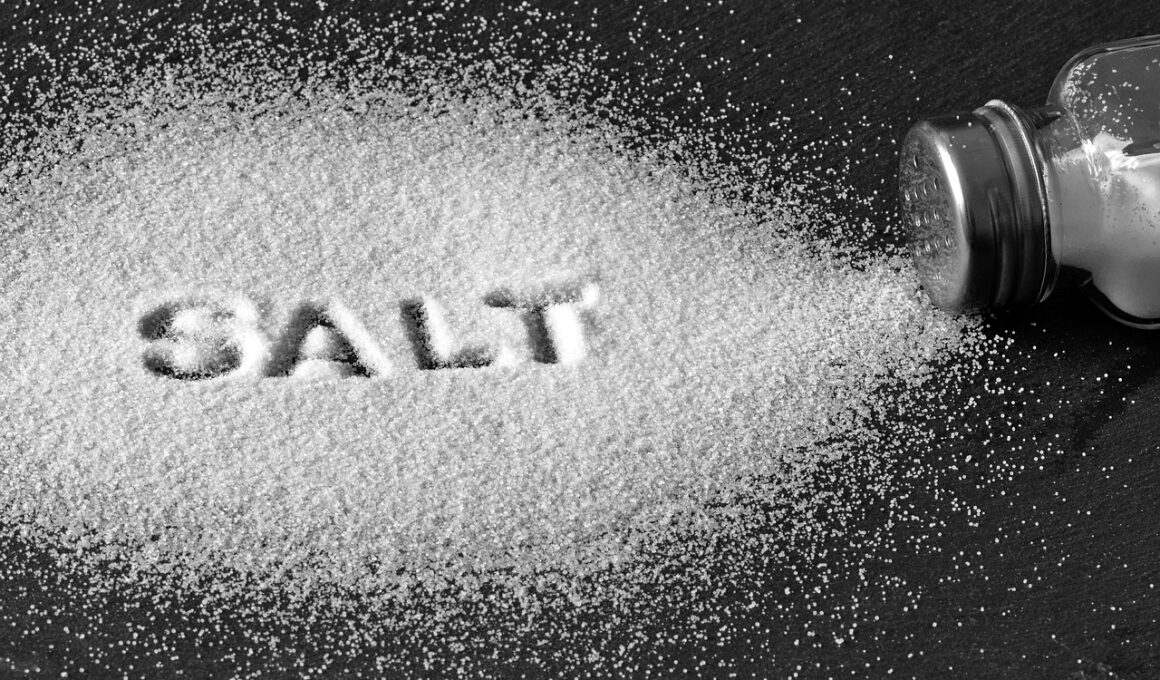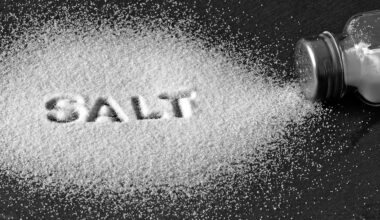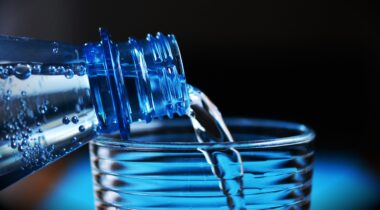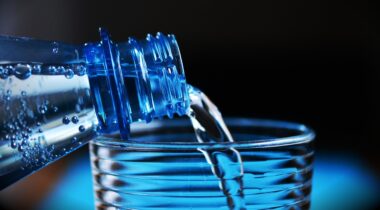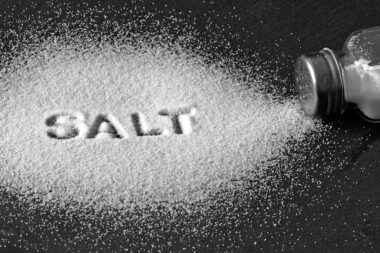The Impact of Salt and Water Intake on Kidney Function
Kidneys play a vital role in maintaining body homeostasis, particularly concerning hydration levels and electrolyte balance. The intake of salt along with water significantly affects kidney function, making it imperative to understand these dynamics. When you consume more salt, your kidneys must work harder to excrete the excess sodium. This process can strain them, especially if hydration is inadequate. Proper hydration assists the kidneys in efficiently filtering blood, removing waste, and balancing electrolytes. Insufficient water intake can lead to concentrated urine, promoting kidney stone formation. Hydration, thus, is crucial for preventing kidney issues. It is essential to monitor fluid intake alongside salt consumption. Dehydration can exacerbate the adverse effects of high salt levels in the diet, increasing the risk of hypertension and kidney disease. Awareness of dietary choices regarding salt and water plays a critical role in supporting kidney health. Ultimately, a balanced approach ensures optimal kidney functionality, enhancing overall well-being. Thus, moderation is key, especially in sodium-laden diets, which often accompany processed foods.
Understanding the sodium-water interplay is fundamental for maintaining robust kidney health. The kidneys filter out excess sodium when the body is adequately hydrated, a process that aids in reducing blood pressure and preventing fluid retention. Salt increases blood volume, urging the kidneys to manage this influx through filtering and excretion. However, excessive salt intake combined with low water consumption can lead to elevated blood pressure, challenging kidney function over time. To bolster kidney performance, it’s vital to maintain a balanced diet rich in nutrient-dense foods while reducing processed items high in sodium. Opting for whole foods like fruits and vegetables, which naturally contain water, may help in achieving this balance. Moreover, staying aware of your hydration status and adapting water intake according to activity level and environmental conditions proves beneficial. It’s not just about drinking water; it’s about understanding when and how much is necessary. Cultivating a healthy relationship with food and fluids helps mitigate kidney-related risks and promotes overall health. Regular health check-ups also support awareness in this regard, providing personalized guidance on managing hydration and sodium levels.
Salt Consumption and Its Role in Kidney Health
High sodium intake is often a concern linked to various health issues, especially regarding kidney function. When consumed excessively, it poses significant risks to the kidneys, leading to potential damage over time. A high-sodium diet may result in unhealthy weight gain, hypertension, and other cardiovascular diseases, further complicating kidney health. Proper hydration can help mitigate some of these effects but is not a complete solution for poor dietary choices. For instance, studies suggest that populations consuming high-salt diets often show signs of impaired kidney function due to the kidneys’ compensatory efforts in sodium excretion. Awareness is key; even minor reductions in sodium could yield significant health benefits. Implementing dietary changes, such as reducing added salt and choosing low-sodium products, can effectively support kidney health. Additionally, learning to read nutrition labels promotes healthier food choices. Adhering to guidelines or recommendations set by health organizations regarding sodium intake reinforces kidney well-being. In essence, the correlation between salt and kidney health stresses the importance of conscious consumption and informed dietary decisions to support lifelong kidney function.
Hydration strategies are crucial for individuals aiming to maintain optimal kidney health. Drinking sufficient water throughout the day ensures that the kidneys have the necessary fluids to effectively filter blood and expel waste. Ideal water consumption varies depending on factors like age, weight, and activity level. A common recommendation is approximately eight 8-ounce glasses, known as the ‘8×8’ rule. However, individual needs may differ significantly, necessitating a more personalized approach to hydration. It’s beneficial to listen to your body’s signals. For instance, if you feel thirsty or observe darker urine, these may indicate a need for increased fluid intake. Moreover, the timing of hydration also matters; sipping water consistently throughout the day can be more effective than consuming large quantities at once. Additionally, incorporating hydrating foods such as cucumbers, oranges, and watermelon into your diet can promote hydration. Regular hydration can also reduce the workload on the kidneys, enabling them to function effectively. Engaging in physical activity also demands higher water intake, highlighting the need for adjustments in fluid intake during exercise to maintain kidney health.
The Benefits of Adequate Water Intake
Incorporating adequate water intake into daily routines presents numerous benefits beyond just kidney support. Proper hydration aids in digestion, skin health, and even cognitive function. One often-overlooked aspect is how water consumption enhances energy levels, potentially impacting physical performance. Additionally, it helps in maintaining muscle function and joint lubrication, reducing the risk of cramps and injuries. Therefore, prioritizing hydration contributes positively to overall health and well-being. The kidneys utilize hydration to filter toxins effectively, consequently reducing the risk of urinary tract infections and kidney stones. Moreover, healthy hydration levels can support weight management as water intake can often substitute high-calorie beverages. This adjustment is particularly significant for preventing kidney-related diseases, especially in overweight individuals. Establishing a habit of carrying a water bottle throughout the day helps to remind you to drink regularly and stay hydrated. It’s essential to choose beverages wisely, prioritizing water over soda or sugary drinks. By doing so, you lessen the burden of excess sugar intake and its associated health issues, promoting a healthier lifestyle centered around hydration.
Monitoring hydration levels becomes increasingly important for the aging population, as kidney function may decline naturally over time. This demographic often faces challenges such as a diminished thirst response and medications that may impact fluid balance. Thus, awareness of hydration needs becomes paramount in preventing dehydration and its subsequent complications. Ensuring that older adults have access to water and hydrating foods can promote better kidney health. Additionally, caregivers and family members should encourage regular fluid intake while being attentive to the unique hydration needs of older individuals. Maintaining a consistent routine for hydration can also support overall health by preventing urinary tract infections and promoting digestive health. Utilizing strategies such as setting reminders or having water-rich foods during meals can help improve fluid intake. An emphasis on hydration, paired with a balanced diet low in sodium, can stave off kidney-related issues often faced by seniors. Therefore, strategies aiming to enhance hydration should become a focal point in discussions about elderly care and health management, ultimately supporting a better quality of life.
Conclusion: Key Takeaways on Hydration and Kidney Function
Understanding the relationship between salt intake, hydration, and kidney function highlights the necessity for mindful eating and drinking habits. Elevated salt levels coupled with inadequate water consumption can lead to significant kidney strain, emphasizing the importance of balance in dietary choices. Awareness of the amount of sodium consumed daily can aid in expressly reducing health risks linked to kidney performance. Additionally, promoting hydration can yield benefits, enhancing kidney function while also supporting other bodily systems. It is a collective responsibility as individuals to prioritize health through thoughtful consumption and hydration practices continually. Regular check-ups can further promote awareness and offer opportunities for adjustments based on personal health needs. Furthermore, lifestyle and dietary changes can enhance well-being, supporting not only kidney health but overall physical fitness. Therefore, aiming for a balanced diet rich in nutrients while maintaining adequate hydration ensures a proactive approach towards kidney health. Take the time to be informed and aware of daily habits; it is a worthwhile investment towards a happier, healthier life with strong, functional kidneys.
In conclusion, practicing mindful hydration and salt intake enhances kidney health while contributing to holistic well-being. Adapting these habits supports the liver and circulatory systems, reflecting a comprehensive approach to self-care. Keeping track of daily salt consumption and water intake serves as a proactive measure to combat potential health issues.
